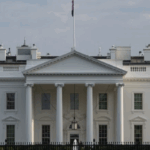As the Academy Awards approach, the spotlight is on the nominees—but behind the scenes, a multimillion-dollar industry is dedicated to influencing the outcome. Each year, Hollywood studios invest heavily in Oscar campaigns, aiming to secure nominations and, ultimately, golden statuettes.
Industry estimates suggest more than half a billion dollars is spent annually on Oscar campaigns—roughly the combined production budgets of this year’s ten Best Picture nominees. Specialized consultants are hired to manage these efforts, often starting as early as a year before the awards, sometimes even before a film begins production.
Timing is crucial. Studios often release films toward the end of the year to keep them fresh in voters’ minds, while premieres at prestigious film festivals help build early momentum. Some films are labeled “Oscar bait,” designed to appeal to the Academy’s preference for genres like period dramas, war films, and movies about the entertainment industry.
The path to a nomination involves winning over a relatively small number of Academy members. With approximately 9,900 members voting, each branch selects nominees within its category—for instance, actors nominate actors and directors nominate directors. The actors’ branch, the largest, has about 1,258 members, meaning a film needs just 252 votes to secure a nomination.
Campaign rules prohibit direct solicitation of votes, but studios are allowed to send one approved message per week. Screener DVDs are no longer permitted; instead, films must be uploaded to the Academy’s online portal. Screenings are allowed, but with restrictions—only non-excessive food and drinks can be offered, and after a film is nominated, even bottled water is off-limits.
To capture voters’ attention, studios run “For Your Consideration” ads in trade publications and host events like Q&As, roundtable discussions, and live performances of film scores. Streaming giant Netflix has invested heavily in its Oscar pursuits, reportedly spending $40 million on the 2019 campaign for Roma, which earned ten nominations and three wins.
Historically, no one mastered Oscar campaigning like former Miramax head Harvey Weinstein. His aggressive tactics reshaped the awards landscape, often bending the rules to promote films like My Left Foot and Shakespeare in Love, which famously beat Saving Private Ryan for Best Picture in 1999. Weinstein’s use of star power and negative campaigning left a lasting impact, leading the Academy to tighten its rules to maintain fair competition.
As this year’s nominees await the big night, the influence of these campaigns remains undeniable, highlighting the complex interplay between art, commerce, and strategy in the pursuit of Oscar gold.
















